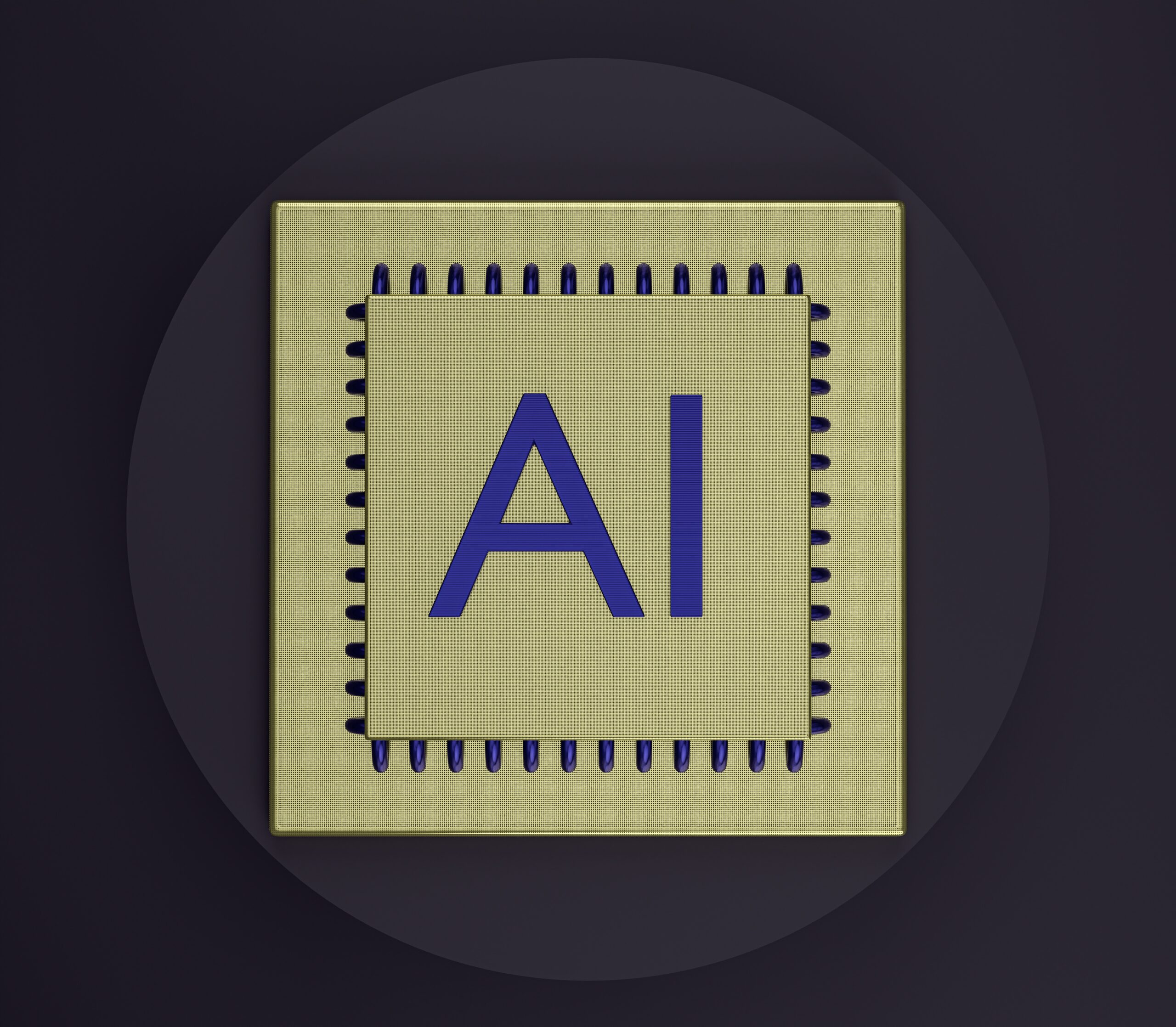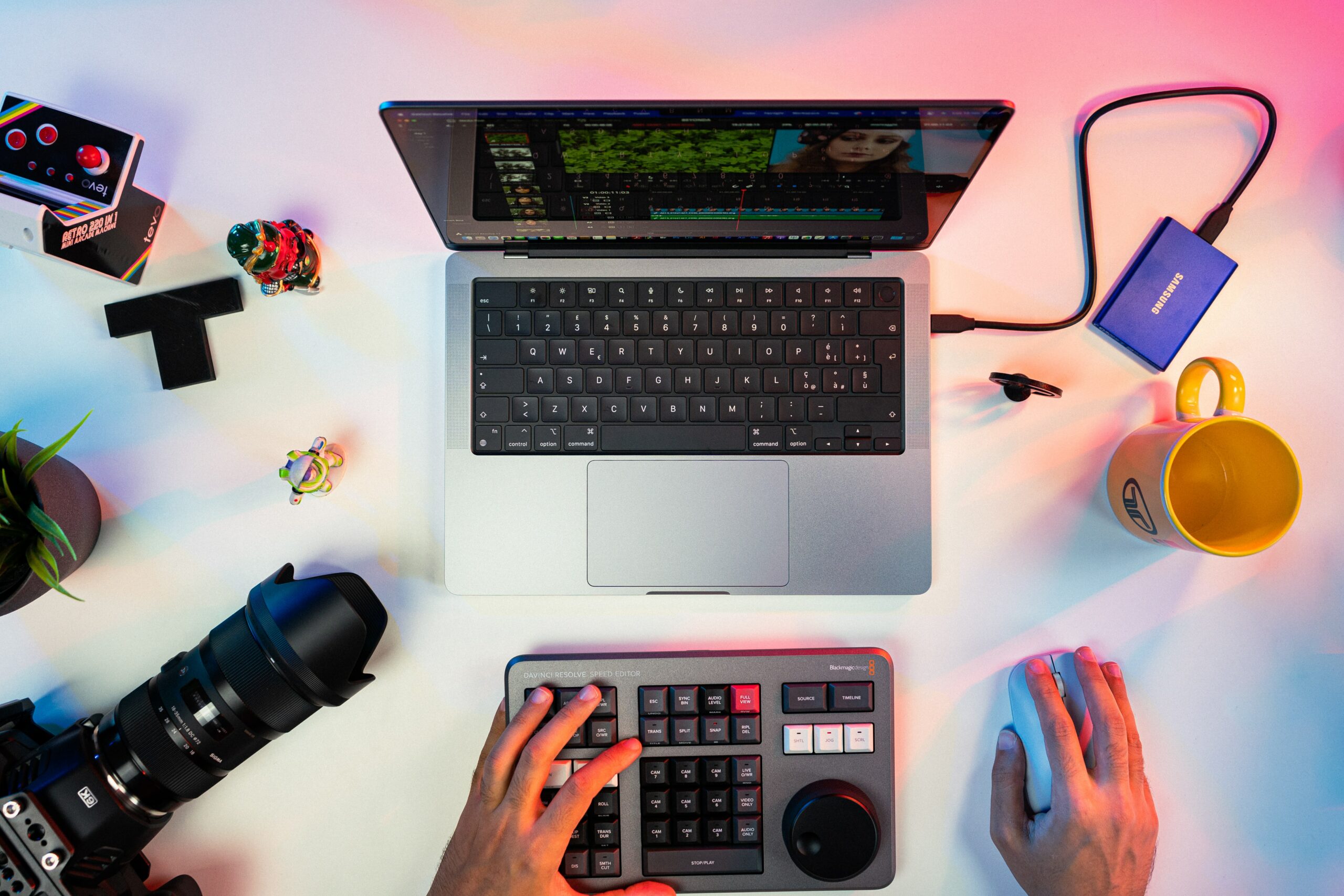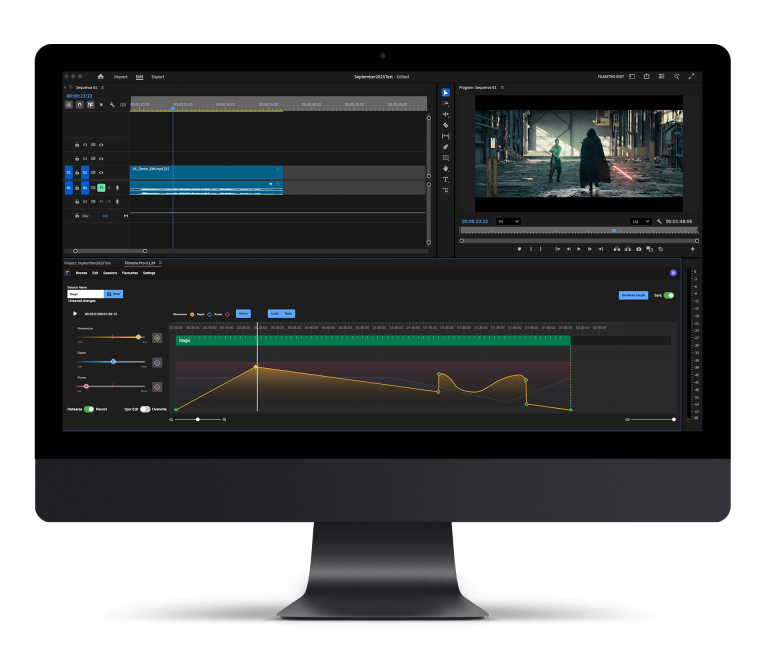Artificial Intelligence (AI) is transforming almost every industry, and film and television are no exception. The world continues to move towards a more digital future, AI’s influence on filmmaking and consumption is poised to grow.
According to Grand View Research, the entertainment and media AI market is expected to grow at a CAGR of over 26.9% from 2022 to 2030. It’s not surprising that the global AI in media market size was valued at just over $10 billion in 2021.
What does this mean for content creators and filmmakers that are breaking into the industry? While the initial outlook may spark feelings of concern and cautiousness, there is reason to believe that you can benefit greatly from its presence and influence in media and film. This guide looks to break those facets down to help ease any potential concerns you may have.
How is AI Used in Film?
AI is already being leveraged in various parts of the filmmaking process that allow for quicker and more automated production times and easier meeting of deadlines. At its core, AI applications and tools simulate human behaviour and thinking by a single or series of algorithms. Over time, AI can become more intuitive and deliver more accurate results.
As AI continues to become more sophisticated, with global tech giants investing billions in its development, it is likely to impact films in even more profound ways going forward. However, AI is not exactly new to filmmaking, with directors already utilising the technology to add special effects, visual effects, and computer-generated imagery (CGI).
Filmmakers will likely see advancements in AI as a golden opportunity to incorporate them into their production processes. Whether it’s natural language processing or generative scriptwriting, or machine-learning algorithms and data aggregation, ambitious filmmakers could very well view AI technology as a way they can take their films to the next proverbial level.
What Aspects of Films Can Be Helped by AI?
Marketing and Distribution
One of the most fundamental aspects of any film production is its marketing and distribution. A film’s marketing process begins well before it’s announced and extends to months or years beyond its release in cinemas.
A successful film marketing strategy relies on huge amounts of data, optimising release schedules, recommendations, and audience segmentation. AI tools can detect the right audience segments to tap into, predict the optimum channels and platforms for promotion, customise advertisements to place video trailers, provide film companies with accurate audience engagement insights, and much more. Its influence is imperative in helping streaming services recommend similar content based on a user’s watch history. This will only grow in accuracy over time.
However, there are inherent risks of over-relying on AI for cinema distribution and marketing. Targeting too narrow an audience segment could stifle a production’s creative opportunities, and filmmakers will need to consider whether tapping into multiple markets is ideal. Production firms will also need to be mindful of issues such as copyrights, licensing, trademarks and intellectual property if relying on AI for marketing tools; they must ensure that data and content are used and analysed ethically.
Screenwriting and Story Generation
When it comes to scripts and screenwriting, AI can be a great asset which boosts productivity. Writers can be more efficient and organised with the help of AI natural language processing algorithms to generate realistic scripts based on common themes, character types, plot points, language styles, dialogue, and motives. Filmmakers can utilise AI tools to also generate potential story ideas, character traits, plot twists, and much more.
That said, entrusting AI to generate a film’s entire script might be overly ambitious at this stage. The AI-generated language will likely lack quirks and nuances that actors will be able to improve with their own skills. However, there’s no denying that AI helps writers and filmmakers overcome minor obstacles when polishing scripts or story proposals. The salient point, however, is that human creativity is still far superior, and if AI is to be used for story generation, it will still require heavy human oversight and supervision.
Pre-Production and Filming
Pre-production is a highly administrative and logistical process and one which can benefit greatly from smart integration with AI tools. AI programmes can gather audience data, preferences and behaviours. It can also gather associated costs of casting, technology and markets for a film. This, in turn, can help filmmakers decide on the right budget.
AI can also help with resource planning, location permits and actor scheduling to make pre-production processes more efficient. Many film companies are beginning to explore AI cameras that provide an immersive ‘storyboard’. This helps with framing, tracking, and capturing visual footage before filming officially begins.
AI’s presence during pre-production can help exponentially, but directors, producers, and cinematographers should exercise caution when using tools at scale. Filmmakers should be the driving force behind capturing shots for films, particularly for capturing natural scenes like weather or wildlife. AI should be used as a helpful aid, rather than a direct replacement for human creativity and ingenuity.
Post-Production and Editing
Film editing is an important aspect when creating a motion picture and a process which is aided significantly by AI. It automatically generates rough cuts of films by identifying high-quality shots, scenes and sequences. With this, editors can then refine and tweak as necessary.
AI can also automate many of the time-consuming tasks like creating visual effects, colour grading and lighting alterations to make the process more efficient and straightforward for film editors. Directors and producers can also utilise AI for creating royalty-free score music that could add value to any scene in post-production.
In visual effects, AI algorithms can be trained to spot irregularities in motion capture, facial recognition and movement simulations. It can create computer simulations of people’s faces which can allow filmmakers to create realistic scenes without compromising actors’ safety.
Balancing Innovation and Ethics: The Future of AI in Filmmaking
As AI continues to grow in popularity and availability, it is expected to transform filmmaking in innovative ways. As to whether this is for the better or worse, this is up for debate.
AI technology possesses plenty of benefits that make processes and people more productive, ultimately speeding up a filmmaking project. However, we all have to approach AI ethically and mindfully. We must always consider the legal and social implications of incorporating AI into a film project, and set appropriate parameters and guidelines around its influence.
With open discussion and effective management, this technology can be an excellent collaborative tool that can usher in an exciting new generation of filmmaking. However, to stop that spiralling out of control, humans need to still be the primary decision-makers. We must view AI as purely a method of assistance rather than a replacement for somebody in a given role.
—
We hope you enjoyed this article and don’t miss out on any of our other blogs!
Sign up to Filmstro and follow us on Twitter, Facebook and subscribe to our Youtube channel. You can also check out some of our amazing royalty-free music today by clicking here.









